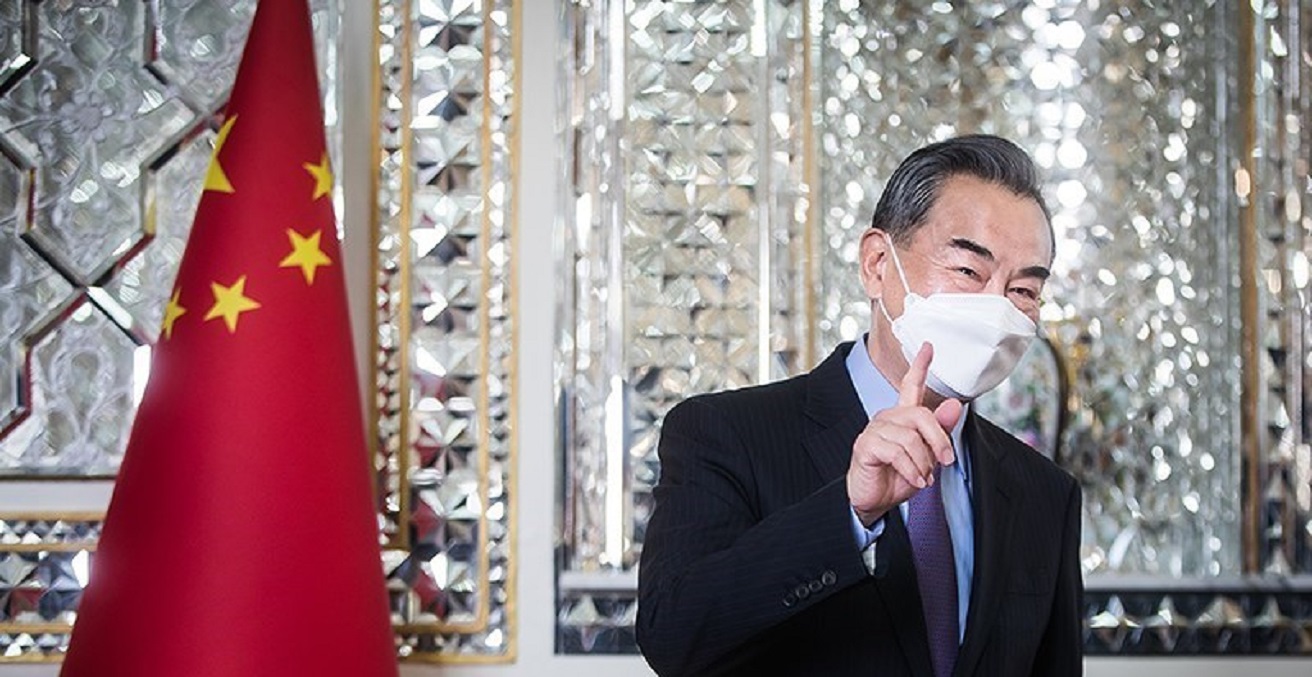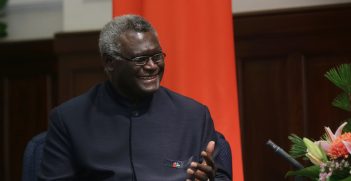Perceptions of China’s Influence in the Pacific: Chinese and Pacific Perspectives

China’s diplomacy in the Pacific reveals a top down approach that misses much of the significance Pacific Islanders attribute to strong and beneficial relations. Regional soft power for now resides with traditional powers, with Australia at the forefront.
How much influence does China have in the Pacific? This question has strong academic and policy relevance, especially in the context of heightened geostrategic competition between traditional powers and China in the region. My two recent research projects may offer some preliminary answers. One is my 2019 survey of 39 China-based Chinese scholars on Pacific Studies (hereafter “survey one”). The other is my 2021 survey of 210 Pacific stakeholders in Papua New Guinea (PNG), Fiji, and Tonga which included 33 scholars, 120 university students, and 57 non-governmental organisations (NGOs) (hereafter “survey two”). The two groups’ “from outside looking in” and “from inside looking out” perspectives help to facilitate our understanding of China’s influence in the Pacific.
China has substantially increased its engagement with the region since the establishment of the China-Pacific Island Countries Economic Development and Cooperation Forum in 2006. However, the findings of my two surveys suggest that Chinese scholars are doubtful of the effectiveness of China’s Pacific diplomacy. Local perceptions of China’s influence in the Pacific are nuanced, with many islanders critical of China’s activities. Below are some examples.
Belt and Road Initiative
The Belt and Road Initiative (BRI) is at the heart of China’s diplomacy nowadays. In survey one, the vast majority of Chinese scholars were optimistic about the future of the BRI, though most of them were mindful of challenges, such as China’s lack of knowledge about the region and the smallness of Pacific islands.
In survey two, the majority of Pacific island scholars and university students said they supported the BRI in the region while holding concerns about China’s motives, the ambiguity of the BRI concept, and debt risks. For example, a Pacific scholar said that “the BRI seems to be everything and anything that the Chinese state and companies are doing, or when they fail then it ceases to be BRI.” On the debt issue, a PNG university student suggested that “It is good to get help from the BRI, but countries must be on their feet to repay the loans to avoid anything the Chinese government can do if they do not repay these loans.” The majority of Pacific NGOs surveyed opposed the BRI. Their concerns ranged from the negative environmental impact of Chinese projects, limited job opportunities for local people, China’s focus on Pacific governments, and human rights-related reasons.
China’s soft power
In survey one, nearly 60 percent of Chinese scholars rated China’s soft power in the Pacific as pass/average (a score of 6-7 on the scale of 1-10) and none of them thought it was excellent (a score of 8-10). This can be explained by their concerns about China’s limited knowledge of Pacific Island Countries’ (PICs) needs and inadequate engagement with local communities.
In survey two, the majority of Pacific scholars, university students, and NGOs preferred government scholarships for themselves/their children from traditional powers (such as Australia, New Zealand, and the United States) over the ones from China.
Chinese aid
Chinese scholars in survey one gave a score of pass/average for Chinese aid in the Pacific, similar to their rating of Chinese soft power. They argued that China needs to improve its aid performance by aligning with PICs’ development strategies, engaging with non-government stakeholders, and learning from the best practices of traditional donors.
In survey two, Pacific scholars’ main concerns about Chinese aid were the lack of transparency and job opportunities for locals. Their views were more neutral with respect to debt entrapment, corruption, the general public as main beneficiaries, and whether Chinese projects are mainly image projects. Pacific university students saw the level of indebtedness of their country caused by Chinese loans as exceedingly serious. More than 90 percent of them believed that China would seize strategic assets in their countries if they default on repayments. Similarly, Pacific NGOs expressed grave concerns about Chinese aid. The majority of them disputed China’s claim that its aid has no strings attached. Most of the surveyed NGOs from PNG and Fiji said they were uninterested in applying for Chinese aid in the future, while nearly two thirds from Tonga held opposite views.
China-Pacific relations
In survey one, two thirds of the Chinese scholars supported the elevation of the Pacific in China’s overall diplomacy.
In survey two, the majority of Pacific scholars, university students, and NGOs ranked Australia as the most important partner to their countries. China was the third most important partner to Pacific scholars, the second to PNG university students and NGOs, the third to Fijian university students and NGOs, and the fifth to Tongan NGOs. On the question of future relations, the majority of Pacific scholars (93 percent), PNG students (58 percent), and Pacific NGOs (53 percent in PNG and Fiji; 68 percent in Tonga) thought their countries should develop closer relations with China, but more than half of the Fijian students (52 percent) disagreed. It is noteworthy that when asked if they were to become policymakers later, the majority of Pacific students said they would be against more Chinese investment, aid, scholarships and migrants to their countries, with the exception of 54 percent of PNG students who said they would welcome more Chinese scholarships.
Implications
These survey findings suggest that China’s influence in the Pacific is questioned by both Chinese scholars and Pacific stakeholders. In particular, China’s soft power seems weak among Pacific non-government stakeholders, with many expressing resentments about China’s practices. For example, a PNG NGO worker candidly said to me in December 2021, “from my experience in talking to people, they don’t have anything positive to say about China…overall, nothing really jumps out at me that is really China influencing in PNG at the community. Made in China is a reference to something that is cheap and poorly made.”
In particular, survey two showcases that local views on China are not necessarily always reduced to the binary analysis of an opportunity or a threat, but it has been perceived differently by different stakeholders in the Pacific, depending on country, groups, and individuals within each country. This is reaffirmed by some other research. For example, in a survey of 1,319 Samoans of voting age between 2020 and 2021, nearly 70 percent of the respondents regarded China ahead of New Zealand, Australia or the United States as the most influential external player in their country. Despite this, these respondents believed that the influence of these three traditional powers on Samoa were more positive than that from China.
The majority of Pacific scholars (53 percent), university students (92 percent in PNG; 71 percent in Fiji) and NGOs (71 percent, PNG; 83 perncet, Fiji) in my survey two recognised that a closer relationship between China and their own countries could negatively affect the latter’s relations with traditional partners. In stark contrast, the views of Tongan NGOs were more positive.
As the geostrategic competition between China and traditional powers escalates in the Pacific, Pacific governments have become increasingly cautious in dealing with China, especially in the area of security cooperation, with the exception of the current Solomon Islands government. Pacific non-government stakeholders’ reservations about China may add to their governments’ concerns of this significant new player in the region and affect related policy making.
In the future, a careful and thorough analysis of local views will be useful if we want to have a better understanding of China’s influence in the Pacific.
Dr Denghua Zhang is a research fellow at the Department of Pacific Affairs, Australian National University. His article ‘China’s influence and local perceptions: the case of Pacific island countries’ was awarded the Boyer Prize by Australian Journal of International Affairs as the best article for 2022.
This article is published under a Creative Commons License and may be republished with attribution.





